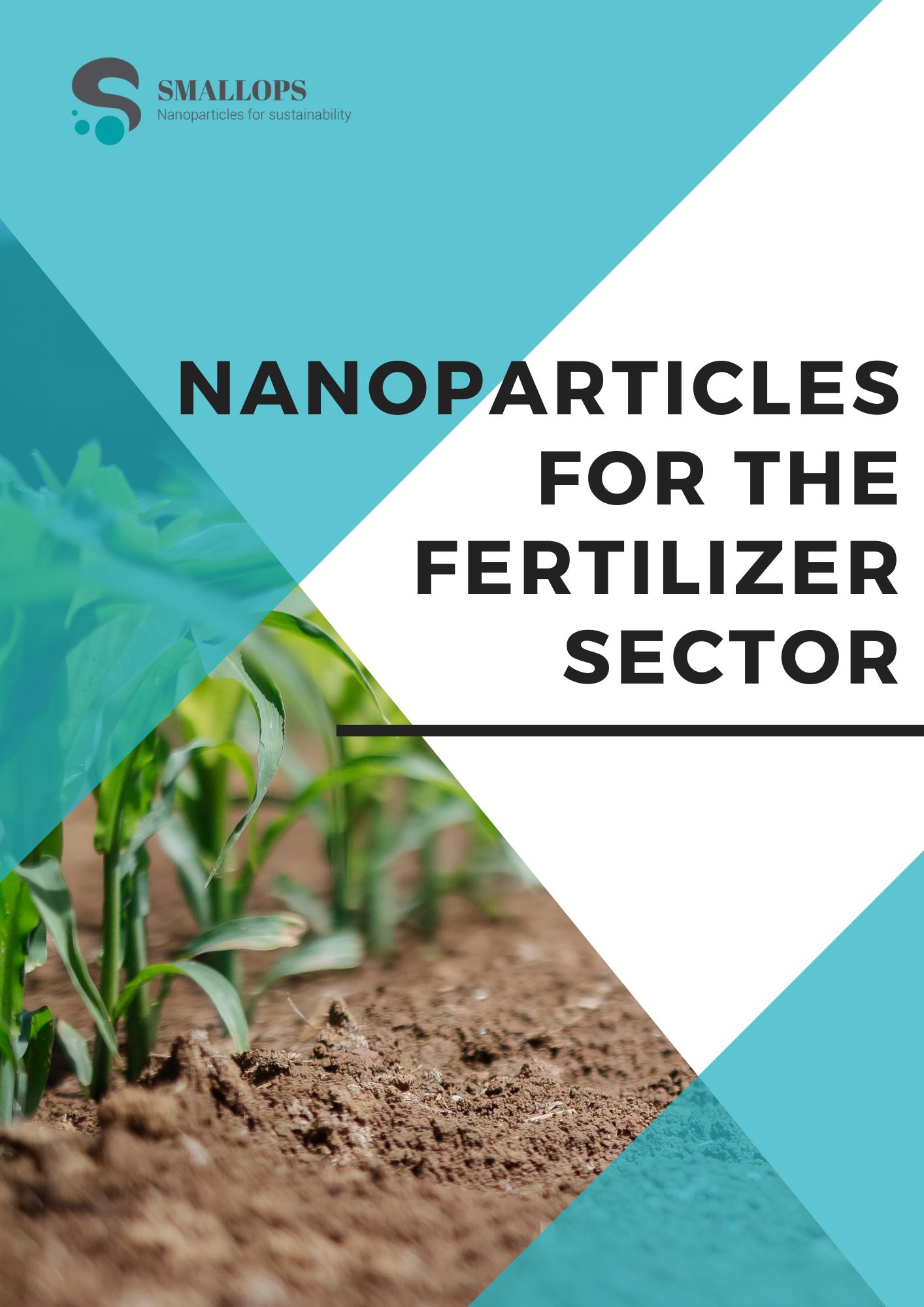BIOCHAR IN SUSPENSION - FERTILIZER
At Smallops we produce a CONCENTRADO DE EXTRACTOS HÚMICOS CON BIOCHAR Y ENRIQUECIDO CON MICROORGANISMOS (fertilizante) a partir de residuos oleícolas (alpechín y alperujo), OPSplus+. Esta suspensión es muy rica en nutrientes como N, K, ácidos húmicos y fúlvicos, Fe… para su aporte como fertirrigación, siendo un producto sostenible.
GET YOUR BUDGET
Get in touch with us and we will make you a personalized budget. If you have any kind of doubt, ask us about our references and you will know that other companies already trust Smallops to acquire their Fe nanoparticles.
The recovery of secondary raw materials, bio-waste, by-products, derivatives and digests produced in the EU, is one of the technological challenges contemplated to favor European self-sufficiency, in the scenario of sustainable agriculture.
The new Regulation (EU) 2019/1009 on fertilizers covers a wide range of component materials of fertilizers and it is contemplated to extend the scope of harmonization in order to include recycled and organic materials from different origins, thus contributing to developing the circular economy within the Union.
CONCENTRATED EXTRACTOS HÚMICOS WITH BIOCHAR AND ENRICHED WITH MICROORGANISMS
OPSplus+
NUEVO CONCENTRADO DE EXTRACTOS HÚMICOS CON BIOCHAR A PARTIR DE RESIDUOS OLEÍCOLAS (ALPECHÍN Y ALPERUJO)
En Smallops hemos desarrollado un nuevo formato de biochar en suspensión orgánico y respetuoso con el medio ambiente. Se trata de un concentrado de extractos húmicos que contiene biochar y que lo enriquecemos con microorganismos. Todo esto lo hacemos a partir de la valorización de los residuos generados en la molturación de la aceituna que nos permite obtener un biochar de excelentes calidades basado en la economía circular y sostenibilidad.
PORQUE COMPRAR CONCENTRADO DE EXTRACTOS HÚMICOS CON BIOCHAR Y ENRIQUECIDO CON MICROORGANISMOS
Smallops technology manages to produce nanometric sizes ideal for direct application in irrigation
It should be noted that biochar is difficult to inject by fertiirrigation but Smallops technology manages to produce nanometric sizes ideal for direct application in irrigation.
PRODUCTS
OPSplus+
CONCENTRADO DE EXTRACTO HÚMICOS CON BIOCHAR Y ENRIQUECIDO CON MICROORGANISMO
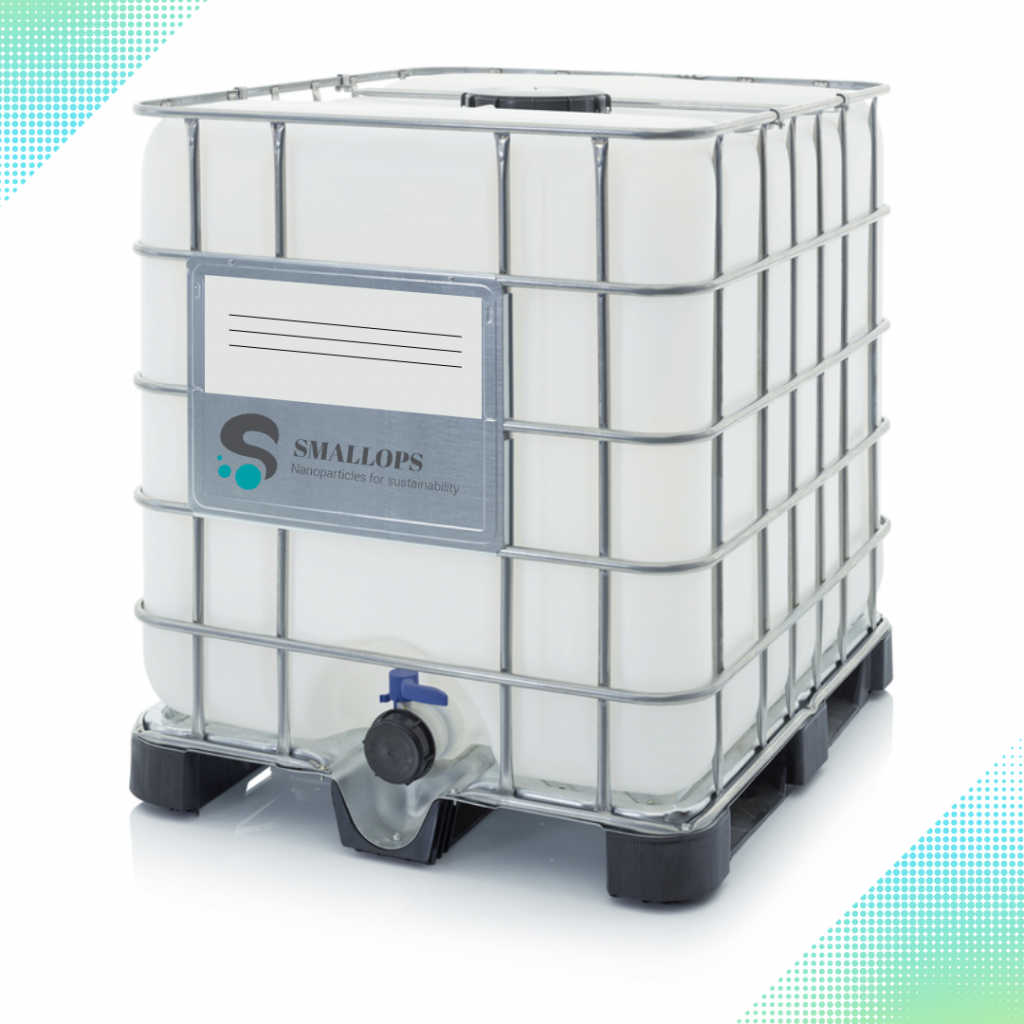
*Request the technical sheet
GENERAL SPECIFICATIONS:
Biochar suspension with Humic acids and ENRICHED with microorganisms.
Sustainable and environmentally friendly production.
- 20-40 L/hectare per month.
- It has all the individual benefits of biochar and liquid worm humus, but thanks to the Smallops S.L. treatment. A perfect coupling is achieved between the microorganisms and the biochar nanoparticles, causing a synergy that makes this fertilizer the star of the crown.
FORMAT AVAILABLE
*VAT included
BIOCHAR IN SUSPENSION

*Request the technical sheet
GENERAL SPECIFICATIONS:
Biochar suspension, from the recovery of olive oil waste.
Sustainable and environmentally friendly production.
- 40-60 L/hectare of trees (olive, almond, fruit trees) every 2 months.
- 20-40 L/hectare per month short cycle crops (tomatoes, peppers, watermelons, melons, etc.)
- Ideal product for Fertigation. It does not clog the drippers and directly affects the irrigation area where the roots absorb nutrients and fertilizers
- Improvement of the physical/chemical characteristics of the soil: Improving water retention, aeration and control of leaching of other added fertilizers.
- Nutrient buffer effect: It manages to retain nutrients and release them little by little, which improves plant assimilation and reduces fertilizer costs.
- Lasting effect: It remains in the soil for long periods of time and successive applications concentrate it and improve its action.
- Stimulation of the soil microbiome: Creates a highly conducive environment for the proliferation of beneficial microorganisms in the soil.
*Disponemos de Biochar en tamaño nanométrico en formato polvo, solicita una muestra.
FORMAT AVAILABLE
OTHER PRODUCTS
LIQUID WORM HUMUS
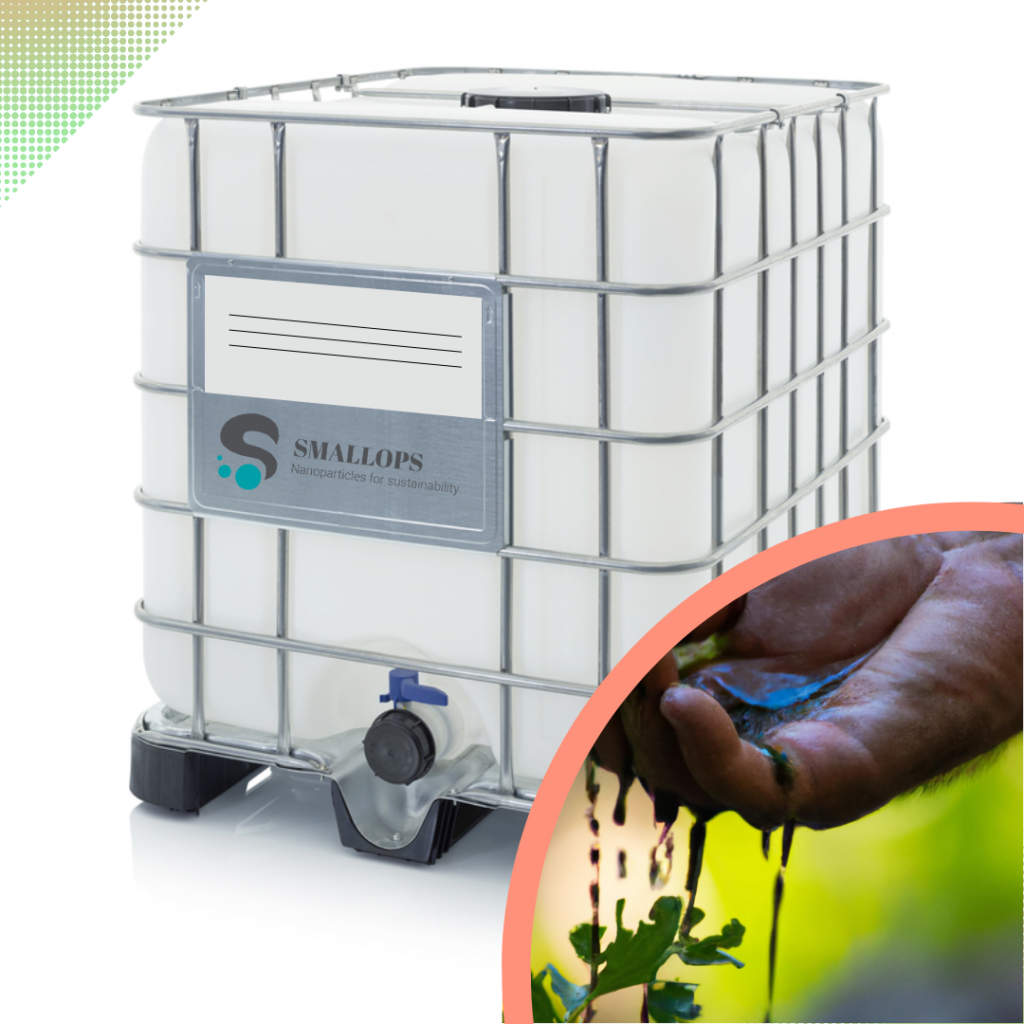
*Request the technical sheet
GENERAL SPECIFICATIONS:
High efficiency biostimulant product.
Sustainable and environmentally friendly production.
- Apply by fertiirrigation, sprinkling or spraying.
- 20-40 L/hectare every 3-4 weeks..
- If it is a foliar application, dilute
- Ideal product for Fertigation. It does not clog the drippers and directly affects the irrigation area where the roots absorb nutrients and fertilizers
- Stimulation of growth and flowering: The nutrients and beneficial bacteria present in liquid humus can stimulate plant growth and improve flower and fruit production.
- Improvement of the physical/chemical characteristics of the soil: Promotes an optimal environment for root growth and improves soil porosity, allowing better air and water circulation.
- Increased resistance to diseases: The beneficial microorganisms present in liquid humus help strengthen the immune system of plants, making them more resistant to diseases and pests.
- Lasting effect: It remains on the ground for long periods of time.
- Promotion of microbial activity: Liquid humus provides beneficial microorganisms to the soil, which can improve microbial activity and the decomposition of organic matter, as well as the conversion of other fertilizers so that they are more assimilable by the roots.
FORMAT AVAILABLE
*VAT included
SOLID WORM HUMUS
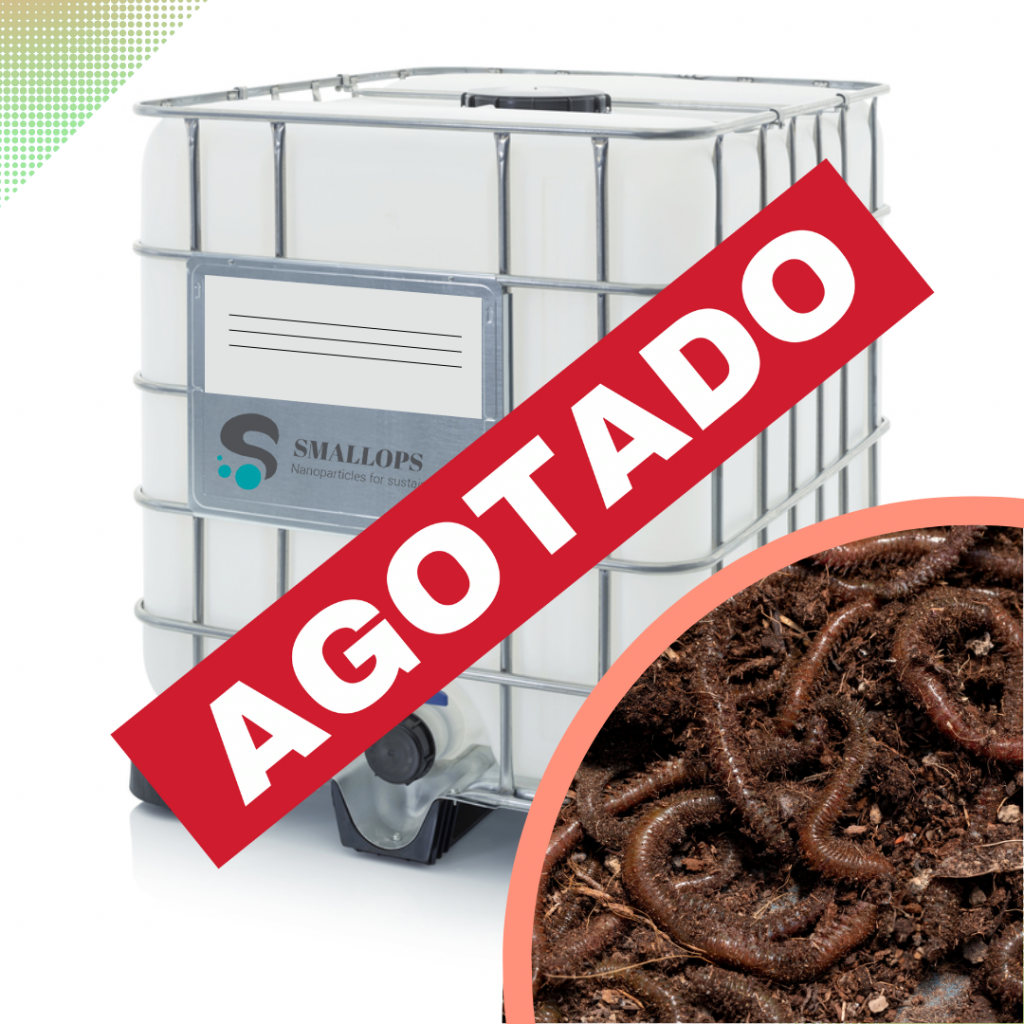
*Request the technical sheet
GENERAL SPECIFICATIONS:
High efficiency biostimulant product.
Sustainable and environmentally friendly production.
- 0.5 kg /m2 extensive cultivation
- 2 kg/m2 in orchards.
- Improves the soil: Improves structure, texture and water retention.
- Essential nutrients: Rich in nitrogen, phosphorus, potassium and micronutrients, released gradually.
- Microbial stimulus: It contains beneficial microorganisms that break down organic matter, releasing nutrients and improving soil health.
- Root growth: Humic acids stimulate roots, allowing access to nutrients and water.
- Resistance to diseases and stress: Organic compounds strengthen plants, increasing resistance.
- Erosion reduction: Improves structure and water retention, reducing erosion.
- Restoration of degraded soils: Beneficial for impoverished soils, improving quality and productivity.
- Sustainability: Promotes sustainable practices, recycles organic matter and reduces dependence on chemical fertilizers.
- Improves water absorption: Increases water retention, crucial in water-scarce areas.
FORMAT AVAILABLE
WHAT IS THE FERTILIZER OR FERTILIZER?
A fertilizer is any type of organic or inorganic substance that contains nutrients in forms assimilable by plants, to maintain or increase the content of these elements in the soil, improve the quality of the substrate at a nutritional level, stimulate the vegetative growth of plants. plants, etc. Natural or ecological examples of compost are found both in the classic manure, mixed with agricultural waste such as forage, or in the guano formed by the excrement of birds (for example, poultry, such as chicken).
Iron is the most abundant nutrient in almost all soils. However, there are frequent iron deficiencies for crops as a consequence of its low solubility in the soil and the high sensitivity of plants to iron chlorosis. The low solubility of iron in the soil is a consequence of the high pH of limestone soils, 8-9, in which the solubility of iron oxides is minimal.
In addition, in these soils, there is a large presence of bicarbonate ion which, on the one hand, makes plants sensitive to chlorosis reduce their ability to absorb iron and, on the other hand, plugs the medium so that the pH cannot go down in the rhizosphere, avoiding points with possible iron solubilization. If iron chlorosis is not treated, it can lead to complete plant defoliation, poor drainage, damaged roots, compacted roots, high alkalinity, and plant nutritional deficiencies.
BIOCHAR
Biochar is a form of charcoal that presents enormous opportunities to improve crop growth, remediate contaminated soil, and prevent climate change that causes carbon dioxide (CO2) emissions. Biochar is also known by the names agrichar or the simple term, black carbon.
HOW BIOCHAR IS PRODUCED
Biochar is the solid product left after biomass is heated to temperatures typically between 300°C and 700°C under oxygen-free conditions. This process refers to the chemical decomposition of organic material when exposed to elevated temperatures in an atmosphere with restricted oxygen levels. Unlike the original biomass feedstock which mainly contains cellulose, hemicellulose and lignin, biochar falls into the spectrum of materials called "charcoal" or "black carbon", but excludes black carbon derived from fossil fuels or waste that does not They are biomass.
COMPETITIVE ADVANTAGES OF OPS
FERTILIZER
Increased plant growth rate has been observed thanks to iron and hydrochar supplementation.
Thanks to OPS plants would have greater absorption of iron.
Increase the resistance of the plant with fertilizer OPS against the stress of environmental changes (cold, heat, wind, water stress...).
Plants do not present phytotoxicity effects due to the slow and gradual release of iron from OPS.
In conclusion, we obtain a fertilizer of high environmental quality at a lower cost, as an input for the agri-food industry is obtained from an agricultural residue such as vegetable water; Since the resulting fertilizer improves the absorption of iron by plants due to its nanometric size and its surface area, so that agricultural production is increased with the same land.
If you want to know more about the use of OPS as a fertilizer, download the following PDF
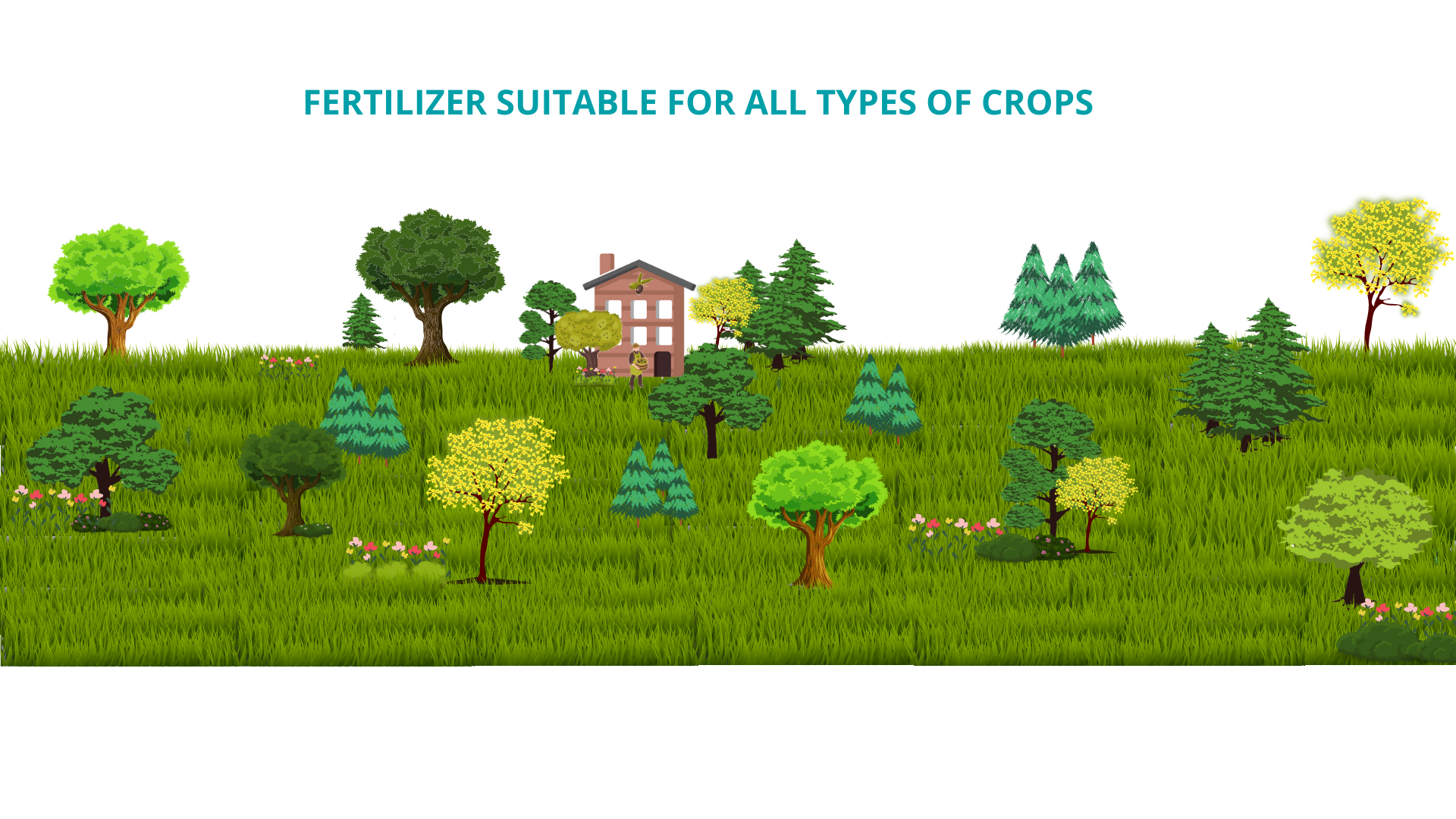
TEST THE PRODUCT
If you are interested in trying our product, contact us. We will solve all your doubts and we will provide you with all the information you need.
We are just a click away!

